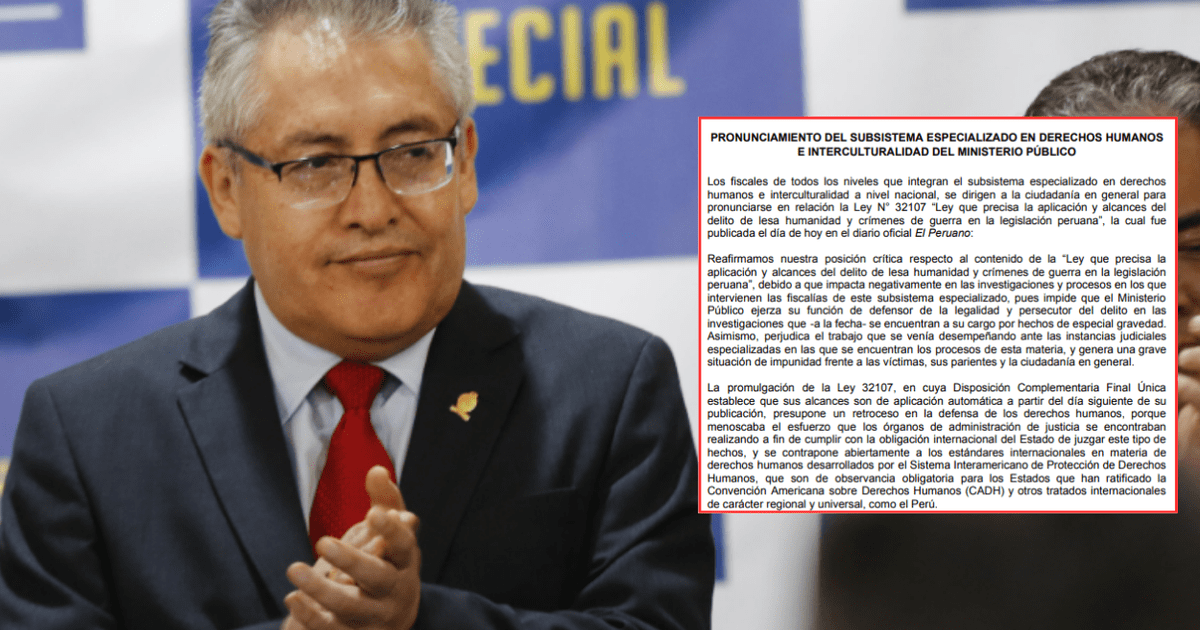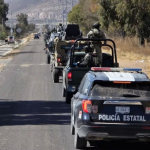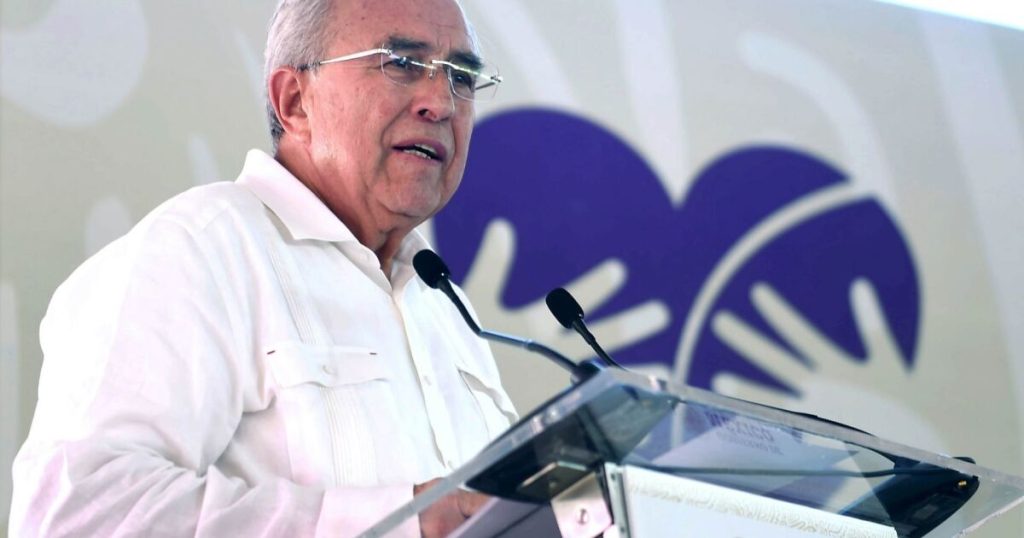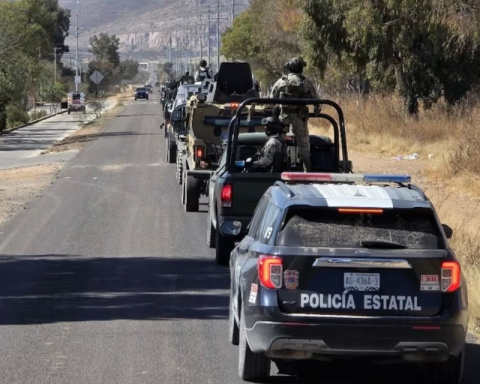On August 9, the prosecutors, who make up the Specialized subsystem on human rights and interculturality at the national level, They issued a statement addressed to the head of the Public Ministry, Juan Carlos Villena, so that the highest authority of the Prosecutor’s Office may file a complaint with the Constitutional Court a claim of unconstitutionality against the so-called ‘Amnesty Law’approved by the Congress of the Republic in July of this year and promulgated last Friday.
“Request the office of the Office of the Attorney General that, within the framework of the provisions of Agreement No. 6541-2024 of the Board of Supreme Prosecutors and the provisions of articles 203 of the Political Constitution of Peru and 98 of the Constitutional Procedural Code, the claim of unconstitutionality be filed before the Constitutional Court against Law 32107, Law that specifies the application and scope of the crime against humanity and war crimes in Peruvian legislation“, reads the document.
They also required that the Board of Supreme Prosecutors issue a statement regarding this rule that, in its opinion, has “a negative impact” in the work they are carrying out against organized crime and that the Supreme Court justices show their institutional support for the members who belong to the area of the “subsystem specialized in human rights and interculturality.”
“Request the Board of Supreme Prosecutors to issue a statement on the negative impact of Law 32107 and, also, institutional support for the prosecutors of this subsystem specialized in human rights and interculturality, considering that the provisions of articles 4 and 5 of the aforementioned law are contrary to the autonomy and functional independence and disrupt the guarantees of reinforced stability of the magistrates of the “Public Prosecutor’s Office”they point out.
The controversial law was promulgated by Congress on August 9 in the official newspaper El Peruano. Photo: Diario El Peruano.
Prosecutors reject the Amnesty Law because it harms investigations
More than 30 prosecutors who make up the specialized subsystem in human rights and interculturality rejected the promulgation of rule 32107, which prescribes crimes against humanity and war crimes for the benefit of the accused. In this line, the members of the Public Prosecutor’s Office They indicated that with this action, the investigations that were being carried out regarding cases of national importance would be harmed.
They pointed out that the Madre Mía, Humaya, Chambara, Geotendía, Lurigancho, Paccha I and II, and Galván Borja cases could be affected because they are in the preliminary stage. Meanwhile, the investigations regarding Soras, Pichari, Ventocilla, the Gardenías Tabalosos, and Chuschihuico may also undergo changes, since the prosecution is about to issue accusations.
In addition, the cases of Huanta 84, Chuschi, Huancapi, El Frontón, Universidad del Centro, Barrios Altos and El Santa, Huancapi, Cedruyo, Sobres Bomba, Acomarca, Hilario Trucios, Cantuta – Pativilca, among others are in oral trial and could take another course if the Amnesty Law is applied.
Crimes against Humanity Act jeopardizes the independence of the Public Prosecutor’s Office, prosecutors say
The prosecutors, who signed the statement, expressed their concern about the negative consequences that may arise, since Article 5 of the The Law Against Crimes Against Humanity opens the possibility that when the magistrates of the Prosecutor’s Office take measures in the investigations may be identified as administrative responsible and consequently, the National Control Authority carry out disciplinary proceedings against him.
This provision, according to the members of the Public Prosecutor’s Office, It represents a “threat to the principle of independence” of the Prosecutor’s Office and to the stability of the positions of the authorities responsible for this type of case.
“We express our concern about the negative consequences that Article 5 of the Law 32107 against the prosecutors of this subsystem, since, by making them subject to administrative responsibility, it enables the National Control Authority to exercise disciplinary control over the decisions they adopt within the framework of investigations and judicial proceedings in which the prosecutors intervene, which threatens the principle of independence of the Public Prosecutor’s Office and, therefore, fiscal autonomy,” it states.
The Law on Crimes Against Humanity represents a step backwards in the defence of human rights
In this regard, they argued that the aforementioned rule represents a “setback in the defense of human rights”“since it “undermines” the work of the fiscal and judicial authorities, responsible for enforcing the State’s “international obligation” to judge this type of events.
They also considered that This law contradicts “international standards” which have been developed by the Inter-American System for the Protection of Human Rights and that they are “obligatory for States” that have ratified the American Convention on Human Rights.
“It presupposes a setback in the defense of human rights, because it undermines the efforts that the organs of administration of justice were making in order to comply with the State’s international obligation to judge this type of events, and it openly contradicts the international standards on human rights developed by the Inter-American System for the Protection of Human Rights,” they state.


















